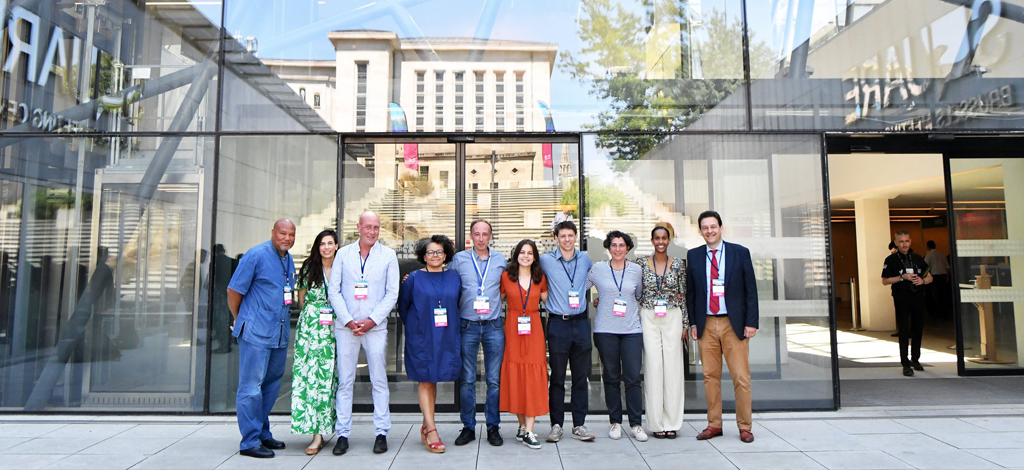The Brussels Urban Summit: urban answers to global challenges
In June 2023, more than 1,400 experts and decision-makers from more than 200 cities around the world travelled to Brussels for the Brussels Urban Summit. A unique event that gave participants an opportunity to exchange ideas and define priorities for sustainable, affordable, and liveable cities!
The Brussels Urban Summit (BUS), which took place from 12 to 15 June 2023, was jointly hosted by the Brussels-Capital Region (BCR), Eurocities, Metropolis, and the Champion Mayors for Inclusive Growth of the Organisation for Economic Co-operation and Development (OECD). The event brought together experts as well as representatives of political and civil society from around the world. In addition to discussing the challenges that cities face, they also had an opportunity to exchange ideas and define priorities for sustainable, affordable, and liveable cities.
BrusseIs International coordinated everything from start to end, working closely with its international and Brussels-based partners.
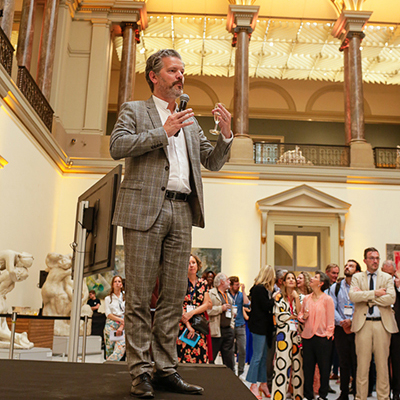 |
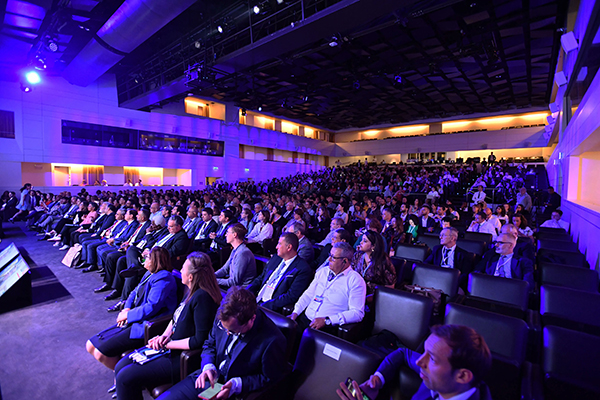 |
The Brussels Urban Summit, a platform for exchange and solutions
Climate change, migration and diversity, urban growth, inequality… Today’s cities face tremendous challenges that are testing their limits, while driving the innovation for a greener, more inclusive future.
The aim of the BUS was to organise high-level political and academic discussions, to compare different urban models, and to see how the European model differed from its African, Asian, and American counterparts and to identify solutions to these global challenges.
The summit also set out to confirm the position of Brussels as a dynamic, international hub that is open to the world, by bringing together and facilitating a dialogue between the main city networks.
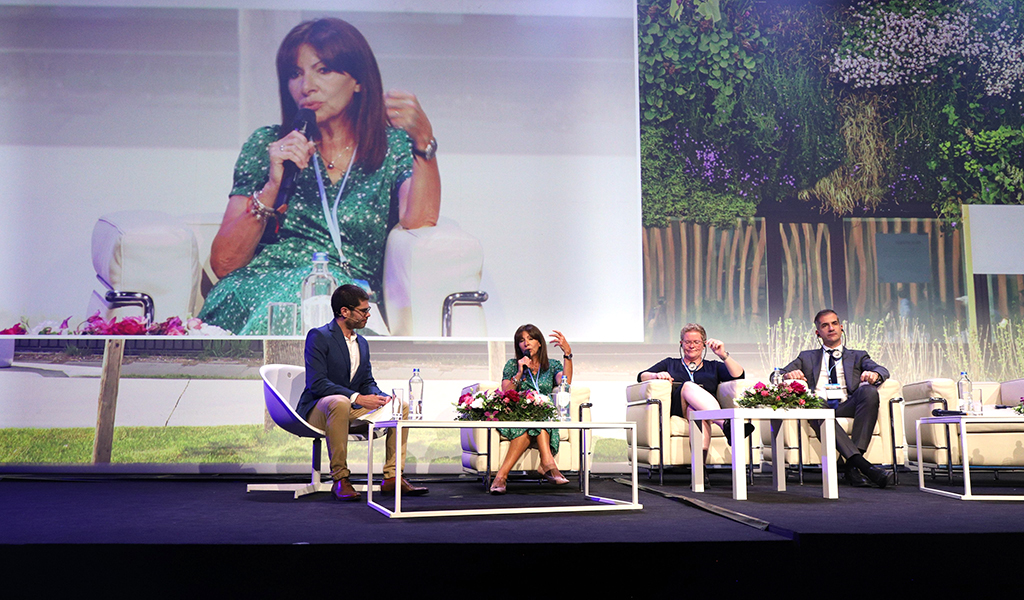
A rich and varied programme
The BUS was also the first time that three international conferences on cities were organised simultaneously, namely the Metropolis World Congress, the Eurocities annual conference, and the Summit of OECD Champion Mayors for Inclusive Growth. More than 200 cities from all over the world were represented, with more than 1,400 politicians, experts, and representatives of civil society gathering in Brussels for the occasion.
The exchanges, and their formats, were both rich and varied. In addition to the plenary sessions, numerous workshops were organised, as well as various other events, project visits, and meetings.
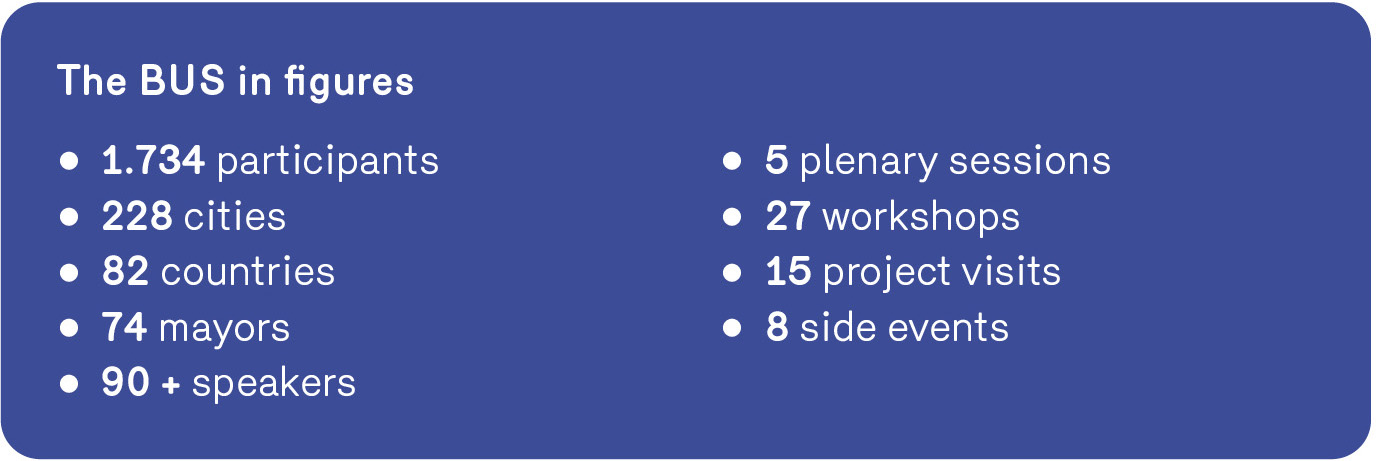
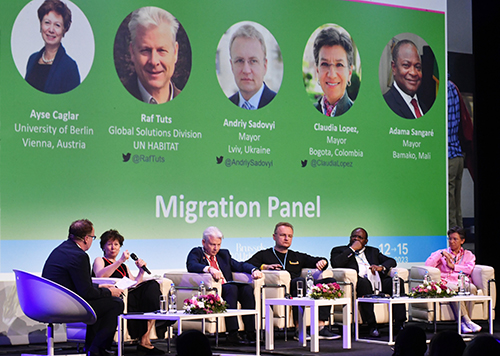 |
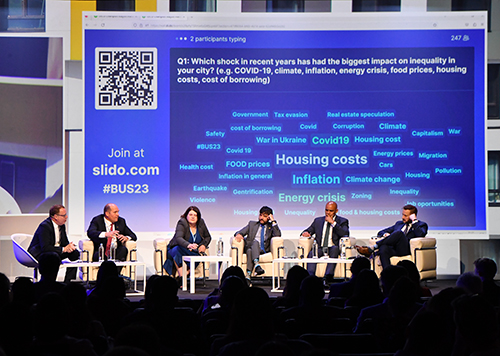 |
Urban leadership
Cities all over the world are growing. By 2050, it is projected that 68% of the world’s population will live in urban areas. As such, municipal governments are the closest tier of government to the people, meaning they can easily mobilise and coordinate the activities of local communities, stakeholders, and businesses.
And while it is obvious that the world’s cities face different geographical and political realities, the levers for change are the same everywhere. With the right governance structures and the necessary financial resources, cities can tap into their economic, social, and environmental resilience to stimulate innovation and pave the way for the major changes that are needed to cope with global challenges.
Climate action
Cities are positioning themselves as the vanguard in the fight against climate change. Besides being responsible for town planning, they also manage vast property portfolios and can influence the market with their formidable buying power.
Given the sense of urgency about the impact of climate change, their role is to engage citizens, stakeholders, and businesses in supporting and implementing prevention, mitigation, and adaptation measures (restoration of ecosystems, flood control, circular wastewater management, and so on). However, they can also use their skills, in housing and urban planning for example, to upgrade buildings, promote the use of innovative materials and low-carbon energy sources, and encourage soft mobility.
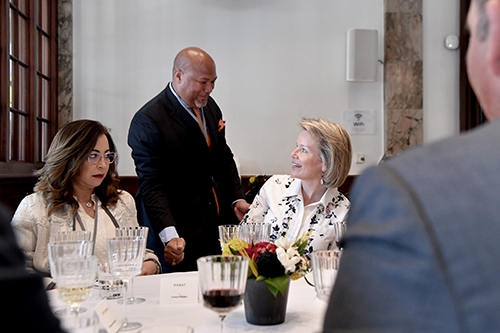 |
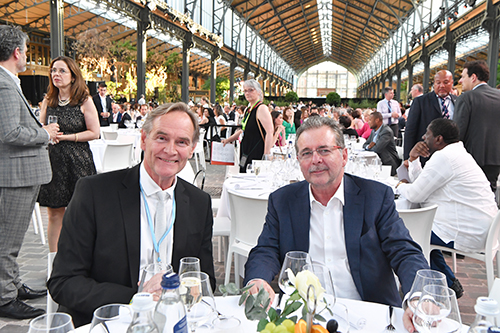 |
Diversity and migration
Migration has proven beneficial for urban economies. But while global mobility has made our cities more diverse, it has also increased discrimination and pressure on social cohesion.
Local governments need to capitalise on the diversity that shapes our cities, using it as an opportunity. In view of the current social, cultural, and economic challenges, they must adapt public services and provide opportunities for all, by tackling discrimination and recognising that diversity is a vital source of creativity and innovation. By investing in socio-cultural initiatives, cities can also help develop a shared urban identity, breaking down barriers between people who share the same space.
Inclusive growth and housing
All over the world, cities are centres for growth and opportunity. At the same time, they can also be places of great inequality, which poses a threat to this growth. To reduce these inequalities and achieve inclusive growth, new policies are needed, especially for housing.
Urban policies must therefore focus on tackling inequalities that are exacerbated by the cost of living crisis and ensuring fair access to affordable, quality housing that can withstand climate change and natural disasters.
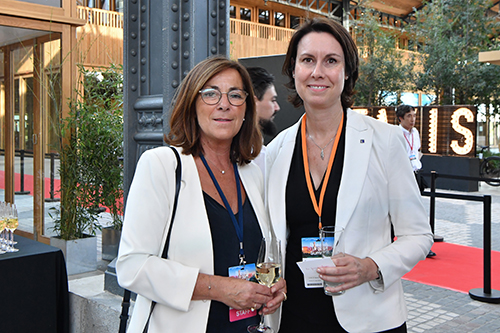 |
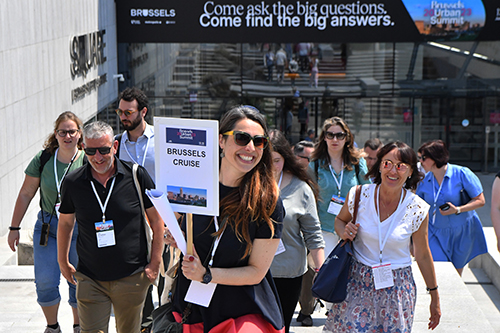 |
Giving cities the resources to be global partners
It is practically impossible for any tier of government to cope with the current challenges single-handedly. City representatives thus have their place at all the tables where decisions are made that potentially affect their ability to meet urgent and long-term challenges.
At the same time, this also means reviewing ownership of political agendas and looking at new ways of working between different levels of government to ensure that cities, their leaders, and the people they represent engage in an effective multilateral dialogue.
Connections to increase positive impact
Meeting global urban challenges in different contexts requires increased collaboration across borders, both at the metropolitan and regional levels. City networks are an opportunity for mayors and their teams to exchange ideas, create new knowledge, and ensure its dissemination.
The BUS was a unique event, bringing together 288 cities and three influential networks that have pledged to strengthen their collaboration and amplify the voice of cities. It also marks the dawn of a new era, towards more inclusive and sustainable cities and new alliances, recognising the central role of cities in the 21st century. Together the voices of cities will resonate even louder, and Brussels International is proud to have been able to be a part of this.
For more information:



